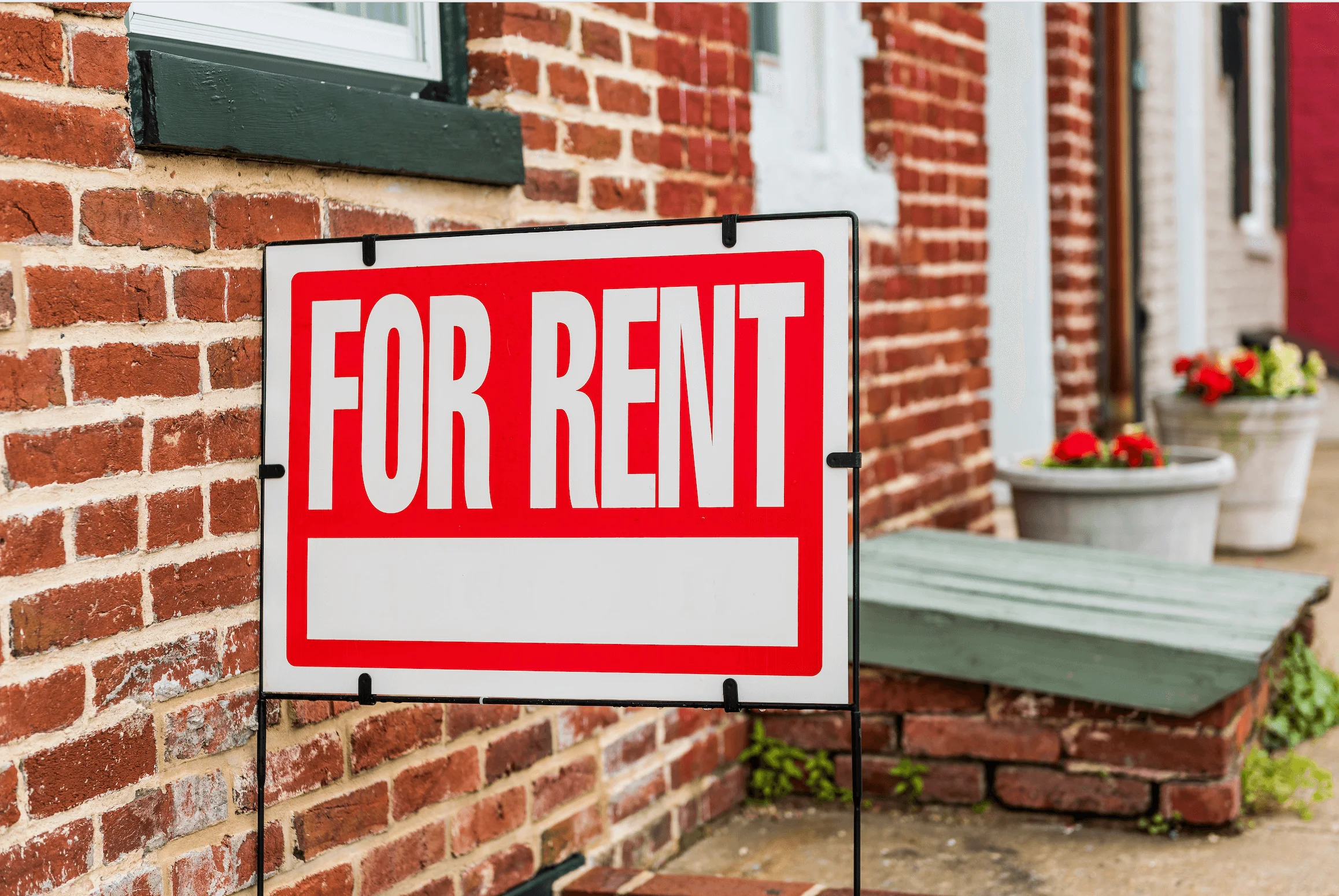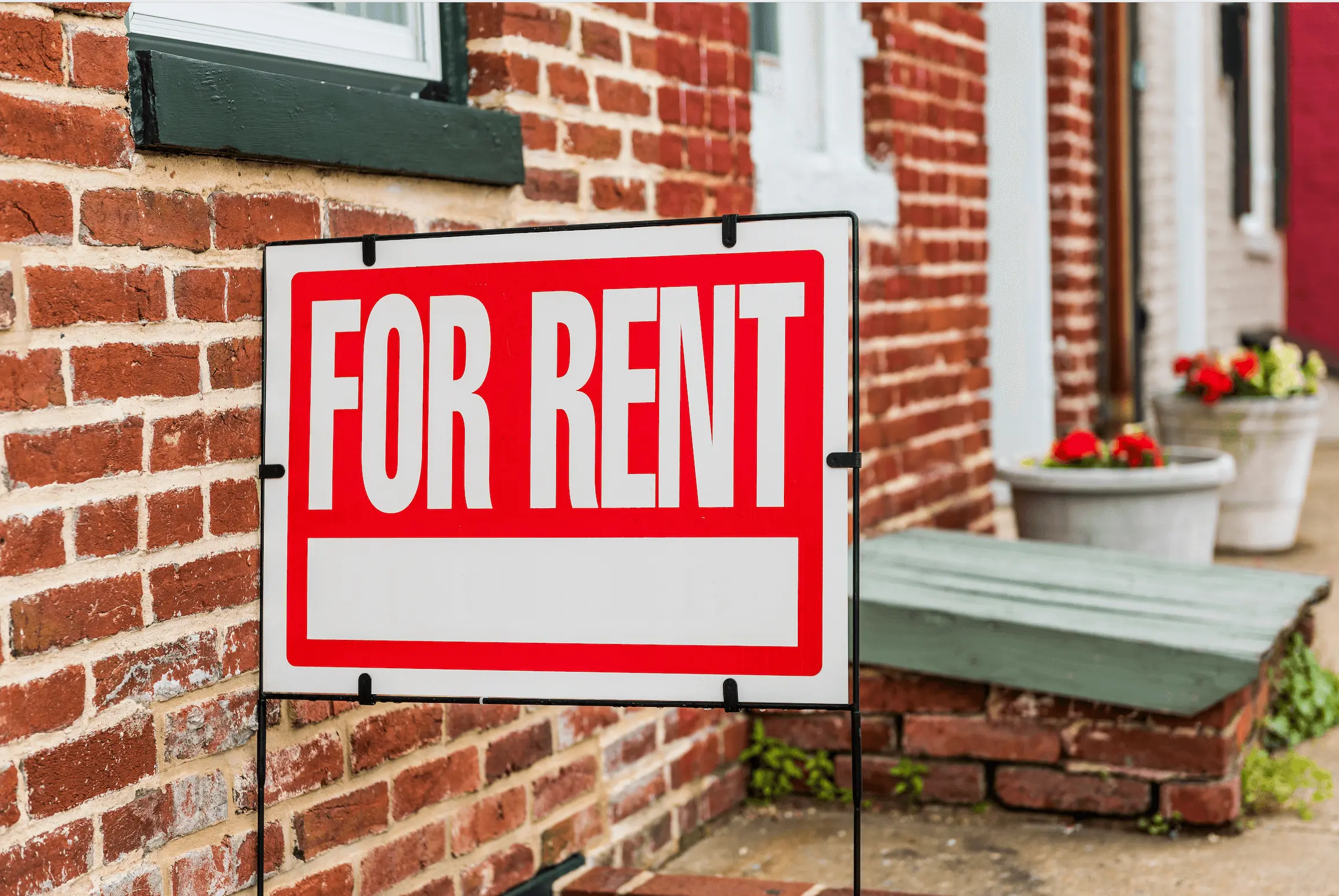Even if you don’t have a lot of money to buy a rental property outright, you can use the house hacking strategy to leverage a home you may already own. This clever REI plan lets you own a home, live in it, and make money by renting out an extra room.
For the average American family, mortgage or rent expenses account for 18 to 30% of their income. But for first-time homebuyers, on average, they’re spending 36.5% of their income on mortgages, according to the National Association of Realtors (NAR).
House hacking, on the other hand, can significantly reduce your mortgage payment, and in extreme circumstances, you can even be able to gain money or live rent-free. Due to the opportunity cost of house hacking, you can invest the money you save on rent or mortgage.
What is the House Hacking Strategy?
House hacking is buying a house with the plan to live in one area and rent out the other. By renting out your home, you can make money that can help pay for things like your mortgage, bills, and repairs. It’s an economical and sensible approach to test the waters of real estate investing.

Proven House Hacking Strategies
You can use a house hacking strategy in a number of different ways, based on your goals and the type of property you choose. Now, let’s delve deeper into these strategies.
1. Single-Family Rentals
Think about buying a house with extra rooms and renting out the extra bedrooms. This is a straightforward and easy way to start hacking into homes without having to deal with the hassles of handling multiple units.
For example, you buy a property with three bedrooms and claim the master bedroom your own. You can rent out the spare bedrooms to friends, relatives, or tenants. With this set-up, you can get rental income (which can be used to help cover the mortgage) while still living in a single-family house.
2. Multi-Unit Properties
You can live in one unit of a duplex, triplex, or fourplex and rent out the others. Owning a multifamily property can help you build wealth faster and give you more rental income options. Multi-unit homes offer some of the best opportunities for house hacking as the home itself was practically built for it.
For example, you buy a triplex and live in one of the apartments. You can pay your mortgage and get extra cash flow from the rent from the other two apartments. This arrangement enables you to not only live rent-free but also save money for potential investments in the road.
3. Short-Term Rentals
You could rent out a part of your house on a short-term basis through sites like Airbnb, VRBO, or HomeToGo. If your home is in a popular spot for vacationers and businesspeople, this may be a great source of extra income.
For example, suppose you own a house in a highly desirable location for tourists and you’ve decided to use Airbnb to rent out an extra bedroom. The nightly rates can be higher for short-term guests than for long-term renters. You may be able to turn a profit and pay off your mortgage more quickly with the extra revenue.
4. Accessory Dwelling Units (ADU)
It is possible to construct an accessory dwelling unit (ADU) on your property, or you can transform an existing structure like an unused guest house, into an ADU. You can stay in your own space while earning extra money by renting out this extra living space.
For example, You have a large backyard and decide to take advantage of the extra space to build a tiny home. You rent out this ADU, which brings in enough money to quickly pay costs of building it, and soon starts cash flowing every month. This way, you can earn money from a tenant without having to open up your main living area.
Take a look at these house hack tactics to see which one works best for you. There are pros and cons to each approach. For example, renting out extra rooms is easy, multi-unit properties can bring in more money, short-term rentals are flexible, and ADUs offer privacy. Start your journey to becoming a successful real estate investor by picking the plan that works best for you.
Note: House hacking is just one of the many ways you can get into real estate investing. You can learn more about all of the real estate investing strategies in our guide: A Complete Guide on the Strategies Pros Use to Invest in Real Estate.

The Steps to House Hacking
You need to put a lot of thought and effort into preparation before you can begin house hacking. The following is a list of the most important steps that will help you understand the process with ease.
1. Financing Your House Hack
It is important to investigate and evaluate the many financing options that are available to owner-occupants. Seek out the most suitable mortgage loan for your financial circumstances by researching FHA loans, VA loans, and conventional loans.
For example, you choose to finance your house hacking property with an FHA loan. You can put down as little as 3.5% of the price of the house with this loan. A mortgage broker can help you figure out how to finance buying a home and get you pre-approved for a loan so you can jump at the chance to make an offer on the perfect property.
Note: There are a multitude of options when it comes to financing your investment. You can learn more about these options in our in-depth guide: Financing Your Investment: What Are the Best Ways to Finance Your Investment Property? Learn From the Experts.
2. Finding the Right Property
The first step in house hacking is to locate properties that suit your requirements. You should think about things like the property’s location, type of property, potential rental earnings, and appreciation potential. If you want to find the best deals, work with a real estate agent who has experience with investment properties.
For example, you hire a real estate agent to help you find a duplex in an area where people are looking to rent houses. You concentrate on regions that are close to universities or business centers, which are areas that have a high demand for rental units. With the agent’s assistance, you can research the rental market and select a property that can bring in enough money from rent to pay off the mortgage.
Note: You can learn more about how to find worthwhile investment properties in our guide: Selecting Your Investment: A Guide to Finding the Best Investment Properties for Your Needs.
3. How to Run the House Hacking Numbers
For house hacking to be successful, accurate financial analysis is essential. Pick a rental property and figure out how much money you could make and how much you could lose. Make sure that the income from the rental property will be enough to cover your mortgage payment and any other expenses, leaving you with a positive cash flow. When doing your research, make use of rental property calculators and other such resources.
For example, you conduct a thorough financial analysis before to acquiring the duplex. There are costs like mortgage payments, property taxes, insurance, repairs, and vacancy rates that you take out of the estimated rental income from the second unit. Based on your calculations, it appears that the rental revenue will fully cover all expenses and even bring you some extra cash every month. So, it seems like a good investment.
Following these steps will set you up for a long-term, fruitful career in real estate investment.
1. Calculate Potential Income and Expenses
Don’t forget to include all of your possible income and housing costs in your calculations so that you can see how your cash is flowing. If you intend to rent out one of your duplex units, for instance, you should calculate the expected monthly income by researching current market rates. You can estimate your rental revenue by using the monthly rent of $1,200 for comparable properties in where you live. You could also think about other ways to make money, such parking fees or a laundry service.
2. Factor in the Mortgage Payment
Include all of your monthly expenses—principal, interest, taxes, and insurance—when calculating your mortgage payment. For example, if your monthly mortgage payment for the duplex is $1,800, which includes principal, interest, property taxes, and insurance, this is a set cost that you will need to cover from your rental income.
3. Include Maintenance and Repair Costs
Make sure you have some money set out for both routine maintenance and surprise repairs. One good rule of thumb is to set aside 1% to 2% of the property’s value every year. For example, if your home is worth $300,000, you should set aside $3,000 to $6,000 a year, or about $250 to $500 a month, for repairs and upkeep. This makes it more likely that you will be able to handle any necessary maintenance without experiencing any financial stress.
4. Account for Vacancy Rates
Because vacancies are unavoidable, make sure your estimates account for the vacancy rate. A typical vacancy rate is between 5% and 10%. For example, if you think there will be 5% vacancies, you should lower your estimate of the annual rental income by that amount. The average monthly income you should aim for is $1,140 ($1,200 – 5%), if your anticipated rent is $1,200.
5. Consider Property Management Fees
Remember to factor in the cost of hiring a property management when you set your budget. The usual range for property management fees is 8 to 12% of the rental income. For example, if you are using a property manager who charges 10% of your $1,200 monthly rental income, you will need to set aside $120 per month for management fees.
6. Calculate Net Operating Income
The Net Operating Income (NOI) can be calculated by deducting all operating expenses from the total rental income. If your total monthly expenses, like the mortgage, repairs, the vacancy allowance, and property management fees, are $2,000 and your overall rental income is $1,200, then your NOI is -$800. You will need to make some changes to your plan in order to attain positive cash flow if your NOI is negative.
With these figures in hand, you can be certain that your house hacking business will be successful. Making smart choices and setting reasonable goals for your investment is easier when you do accurate calculations.

4 Benefits of House Hacking
Aspiring real estate investors may find house hacking to be an appealing strategy because it offers several advantages. In order to better understand these advantages, let’s go over each one in greater detail using examples.
1. Possible Lower Down Payment
Many mortgage programs offer reduced down payment options for primary residences as compared to investment properties. You might be able to get an FHA loan with as little as a 3.5% down payment if you buy a home to live in yourself. This is different from investment houses, which usually need a 20% or more down payment.
For example, as a first-time homebuyer looking to get into real estate, you decide to house hack and buy a duplex with an FHA loan. The full purchase price was $300,000, but you only paid down $10,500, or 3.5%.
However, if you bought the same house as an investment property, you would have had to make a 20% down payment ($60,000) instead.
2. Qualify for Owner-Occupancy Financing
Generally speaking, conditions and interest rates on owner-occupant financing are better than those on loans for investment property. This can drastically lower the total cost of borrowing as well as your monthly mortgage payments.
For example, you buy a triplex and live in one unit while letting out the other two. As an owner-occupant, you can get a 3.5% interest rate on a 30-year fixed mortgage.
If you had bought the triplex for investment purposes only, the interest rate might have been 5%, which would have made your monthly payments more expensive and the overall amount you would have paid into the loan more expensive.
3. Easy Introduction to Real Estate Investing
As you gain skills, house hacking lets you start with small investments and grow them over time. Going into big real estate deals headfirst is risky, but this method lowers those risks.
For example, let’s say you’re interested in investing in real estate but aren’t yet ready to handle the responsibility of managing numerous properties at once. Initially, you will purchase a single-family home that has a finished basement and then rent it out to tenants.
You get experience with managing tenants and keeping the property in good shape, and the rent helps pay your mortgage. Eventually, you save enough to buy another home, which makes your investment portfolio bigger.
4. Smoothly Transition to Owning a Rental Property
You can get real-world experience as a landlord by living in one part of your home and letting out the rest. You’ll learn the ins and outs of property management, tenant interaction, and landlord obligations via hands-on experience; it will help you ease into owning additional rental properties down the road.
For example, you buy a fourplex and live in one of the units. You rent out the other three units. You quickly learn how to screen tenants, manage maintenance issues, and collect the rent. As you gain confidence in these duties, you might decide to purchase another multifamily property. Because of your prior familiarity with home hacking, this change will be easy to handle and convenient.
House hacking can help you get started investing in real estate with lower initial costs, better funding, and an easier-to-handle introduction to the world of real estate investing. These benefits give you a strong platform on which to develop a profitable real estate investment portfolio, enabling you to gradually increase your wealth.

Common House Hacking Mistakes to Avoid
House hacking is a great way to start a real estate investing business, but there are some common mistakes you should stay away from if you want to be successful. Don’t make these common mistakes:
1. Underestimating Reoccurring Expenses
It’s easy to forget about all the additional costs that come with owning and managing a home, and not taking into account all of those expenses can lead to financial stress.
When you buy a house with the hope that the rent will cover your mortgage, things can go wrong if you don’t plan for repairs, upkeep, and times when the house is empty. This is why it’s important to find out how much everything really costs instead of just guessing to get the numbers to add up.
2. Overestimating Your Rental Income
Do not gamble with your earnings by assuming you can charge more rent than the real estate market would bear. When you compare the rental properties in your area, you should look at the ones that have the closest similarities to the one you own.
Buying a home and setting rental prices according to your profits is out of the question. If your rents are excessively high, it will take longer to find tenants. You’ll probably have to lower your rent regardless. Avoid making the same mistake by calculating reasonable rental rates based on a market analysis.
3. Failing to Screen Potential Tenants Properly
An important part of house hacking is picking the right renters. Not properly checking out potential tenants can cause problems like not receiving rent on time and damage to property.
Don’t be in such a hurry to fill a vacancy that you blindly accept the first applicant without checking their references, credit, or rental past. Just like that, you can end yourself renting to someone who isn’t reliable, who doesn’t pay rent, or who damages your property. With the right screening, you can find a tenant who is more likely to be reliable.
4. Neglecting Local Legal and Zoning Regulations
You risk fines and legal trouble if you disobey zoning requirements and municipal legislation. This can put a stop to your whole home hacking business as well.
You might get a letter from the city telling you to return the space to its original use if you turned your garage into an accessory dwelling unit (ADU) to rent out without checking the local zoning laws first and in a place where it’s not allowed. You won’t be able to recuperate the additional time and money spent on this through rental income. It is your responsibility to check local legislation before implementing any home hacking ideas.
5. Not Having a Savings Fund for Emergencies
There will be times when you have to pay for things you didn’t plan for. It could be difficult to deal with unexpected expenses that crop up from time to time if you don’t have an emergency fund.
You should save money in case there is a big problem with your property that needs quick and expensive repairs. If you don’t have an emergency fund, you might have to borrow money or use credit cards, which can put you in debt and cause stresses about money. Situations like this can be avoided by setting aside money for emergencies.
If you don’t make these common mistakes, your house hacking experience will go more smoothly and earn you more money. Remember, successful house hacking requires careful planning, accurate financial forecasts, thorough tenant screening, following local laws, and having an emergency fund.
Plan for a Potential Exit Strategy
Making a plan for your exit from the start can help you make choices and give you a clear way to move forward. To help you prepare your exit strategy and next moves successfully, below are the following:
1. Define Your Long-Term Goals
Home hacking can help you reach your goals, but you need to think about how it fits into your total investment plan. You might want to buy enough rental homes as a long-term goal so that they bring in enough passive income to replace your full-time job. As you work your way toward financial independence, house hacking will help you build a bigger investment portfolio.
2. Consider Selling the Property
If the market is doing well and you want to take advantage of your equity, selling the house can be a smart move. For example, after five years of living in your duplex, the value of homes in your area has gone up a lot. With the big profit you get from selling the duplex, you decide to buy more properties or look for other investment options.
3. Convert the Property to a Full Rental
You might live in one of the three units in your triplex at first and rent out the other two. After a few years, you buy a single-family home, move out, and rent out the room (or unit) you used to live in. All three units of your triplex can now be rented out, which will bring in more cash and give you more ways to make money.
4. Use the Equity for Future Investments
You can fund more investments by drawing on the equity you’ve accrued in your property. You’ve paid down a big chunk of your debt and the value of your fourplex has gone up. You can use this equity to buy another rental property by taking out a home equity loan or refinancing. This will help you build your investment business and make more money.
5. Plan for Capital Gains Taxes
When you sell your property, be mindful of the tax ramifications, particularly capital gains taxes. Consider measures to reduce these taxes, such as using a 1031 exchange. So, you own a multi-unit property and intend to use the money from its sale to buy another rental property. With a 1031 exchange, you can put off paying taxes on capital gains, which means you can keep more of your hard-earned money to put back into your investments and watch them grow.
Your route to house hacking might be in line with your long-term financial aims and investing goals if you prepare your exit strategy and following steps. This knowledge will help you make smart choices that will help your real estate portfolio grow and make you money.
Find Your Perfect House Hacking Property with New Western
All things considered, house hacking provides a versatile REI technique with alternatives that can accommodate various lifestyles.
Finding the right place can be hard, especially if you’re new to the real estate business and don’t have much experience looking for investible properties. Get in touch with New Western when you’re ready to dive headfirst into home hacking. Our local agents will help you locate the ideal property where you can make the most of your preferred house hacking strategy.







